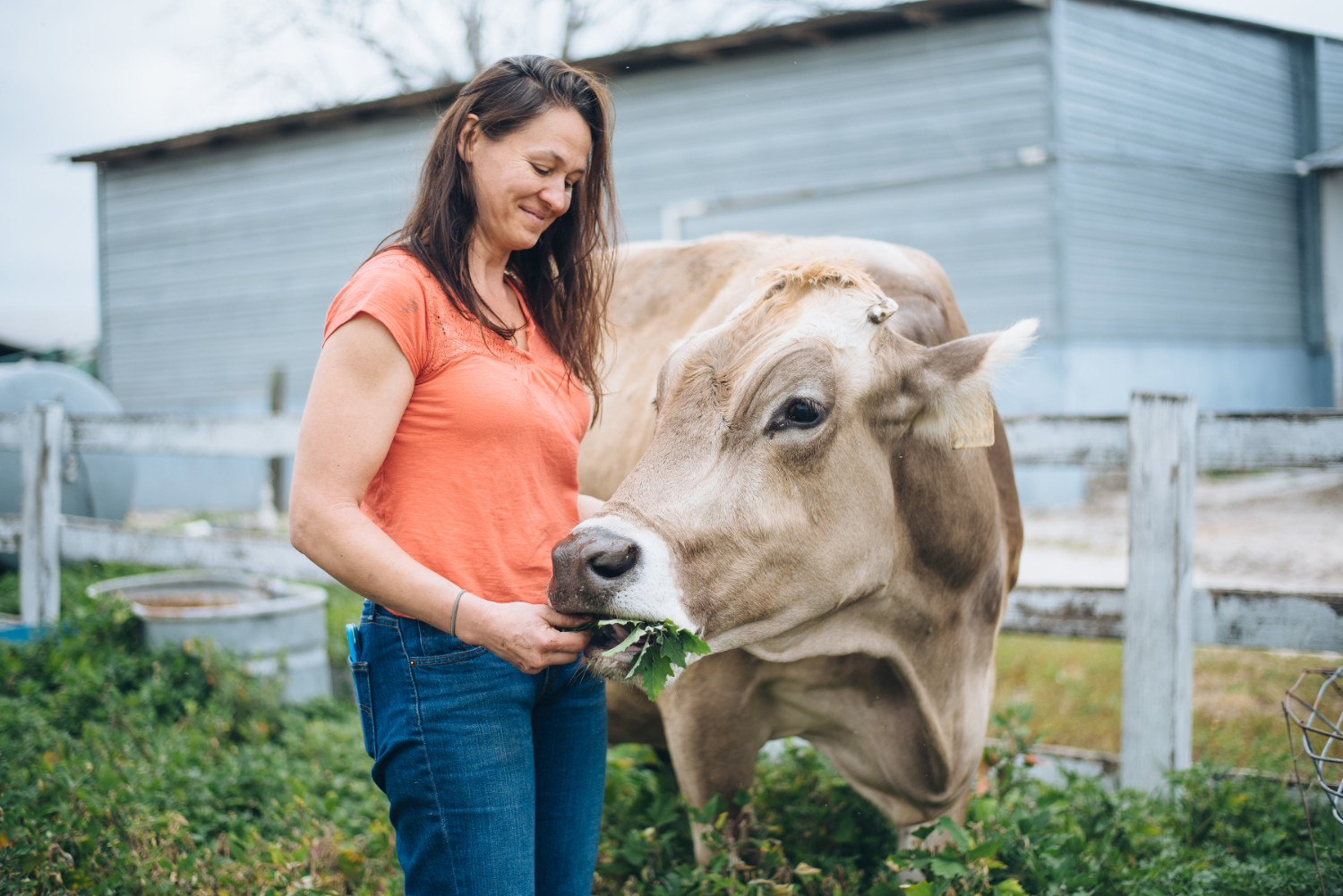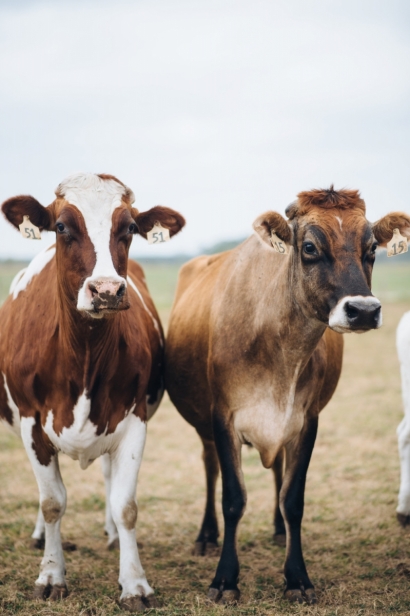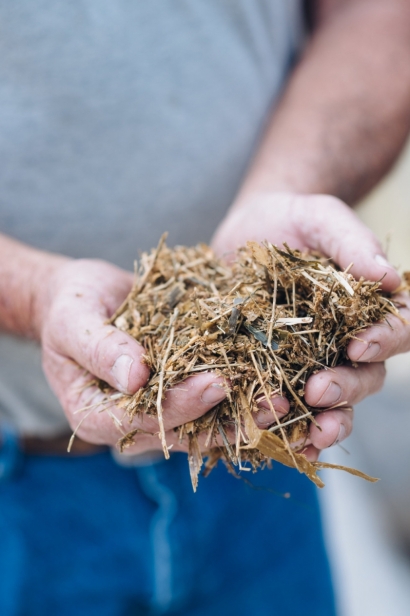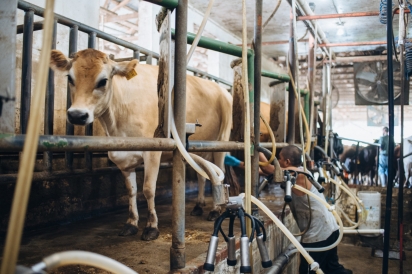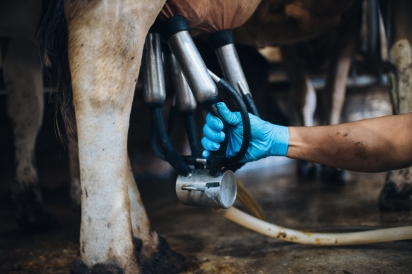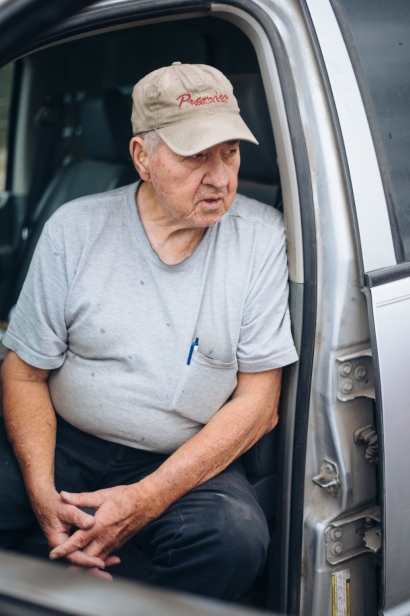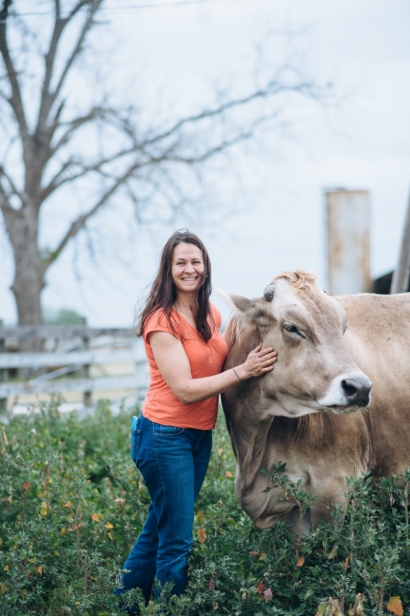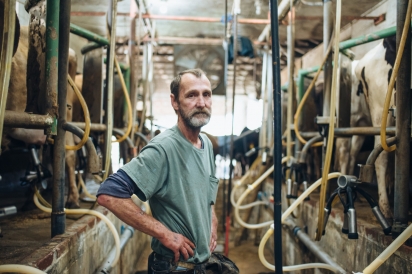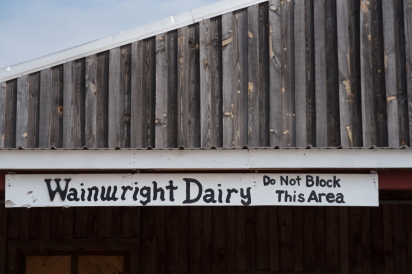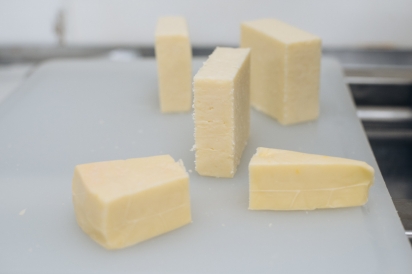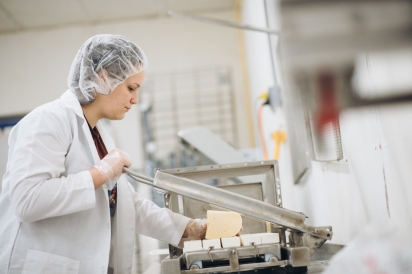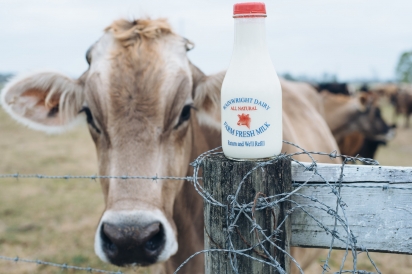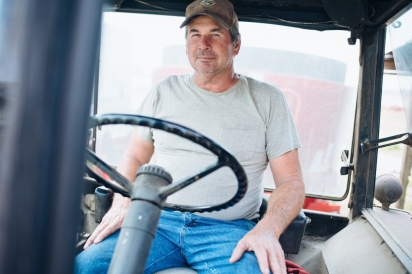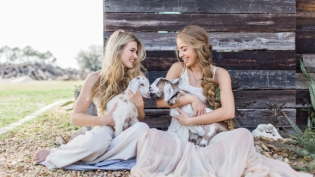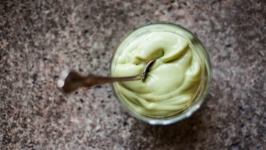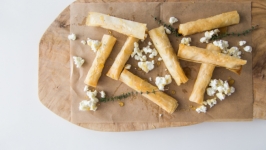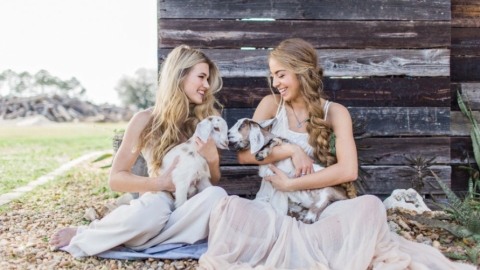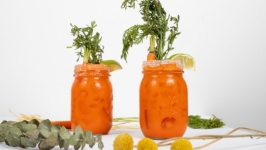How Now Suntanned Cow
Quick! What’s the first animal that comes to mind when I say “Florida”? My informal poll of 10 friends and family tallied five alligators, one manatee, one dolphin, a spoonbill, a snake and even one vote for team jaguar (my mother-in-law thought I meant mammal). Nobody said cows.
Yet bovines have a storied history here. The First Coast saw the first cattle to set hoof on the continent, via Juan Ponce de Leon’s final voyage in 1521. European immigrants brought cattle to provide their families with meat and dairy products throughout the 1600s. Cattle were not bred specially for dairy purposes until the 1800s. As people moved from farms to cities, it became necessary to mass produce, improve quality and automate milk production as the popularity of the beverage and its byproducts increased. Commercial dairy operations were born.
Milk is Florida’s sort of “secret” three-quarters-of-a-billion-dollar industry. Citrus and tourism may garner the headlines, but our milk production volume is tops in the American Southeast and typically ranks 18th to 20th in the nation. Fact checking with Mark Hudson, the Florida State statistician for the USDA, showed that 125,000 Florida dairy cows produced over 2.5 billion pounds (roughly 300 million gallons) of milk in 2016.
So what happened to all the dairy farms that dotted the Northeast Florida landscape in the 20th century? Many regional family farms succumbed to land development and fickle prices or were gathered into the fold of Southeast Milk (a large dairy cooperative created in 1998 when two Florida milk co-ops merged and which now handles most of the milk marketed in the state).
In the 1920s, the retail tycoon J.C. Penney heavily invested in Florida real estate, including 120,000 acres in Clay County. Part of this land became Penney Farms and included Foremost Dairy (named for one of Penney’s prized bulls).
Penney’s dream of an idyllic and self-sufficient farming community was shattered by logistics issues and the Great Depression. He was bought out by Paul Reinhold, who was one of the first to use industrial refrigeration to freeze ice cream. Reinhold had huge success at the helm of Foremost. The town of Penney Farms is now home to Penney Retirement Community. And, interestingly enough, Metro Nightclub in Jacksonville’s historic Riverside neighborhood also resides in a former Foremost Dairy building.
The Skinner family’s dairy farm ran on large land holdings in Jacksonville from the 1950s to the 1990s. As all-inclusive grocery stores came into fashion, Skinner Dairy tried to innovate with drive-through “milk houses.” If you’re not a native who shopped at one in the past, drive around the area today and you can still see Skinner buildings with their distinctive pitched “butterfly” roofs, as some of them still stand, though these days they are home to other shops.
Dinsmore Dairy did not go out of business for the same reasons others did. Open from the early 1900s through the 1980s, Dinsmore was owned by the Johnson family. Staunch Jacksonville civil rights advocates and desegregationists, the Johnsons were chased from the retail side of the business in 1959 by white supremacists. The local KKK actively encouraged boycotts of the dairy and burned a cross on Dinsmore property.
Agnes and Frank Gustafson’s dairy was a Clay County mainstay, operating for over 100 years in Green Cove Springs. Carl Wainwright, whose family now runs Live Oak’s Wainwright Dairy and Creamery, worked at Gustafson’s at one point in the 1950s.
You can still see Ma and Pa Gustafson’s faces on milk cartons, even though Southeast Milk took over their dairy in 2004. The parent company felt, however, the dairy was too small and too old to be viable, and Gustafson’s Dairy’s Green Cove site was shuttered for good in 2013.
In his mind, Wainwright estimates about 10 area dairies have folded in the last year or so. Alicia Halbritter, the forage/ livestock agent at the Duval County Extension, is not surprised to see smaller ventures fading away, yielding to larger co-ops that have modern, efficient methods and access to better distribution channels.
“It’s expensive to purchase a dairy and any kind of equipment like milking machines,” said Halbritter. She sees it as an all-encompassing business. She added the dairy farmer works every day, milks two or three times daily and worries about processing, legal matters like all of the associated testing, regulations and more.
“You can almost only have time for one part of the industry,” Halbritter said.
As Wainwright’s daughter Cheryl Wainwright Finney put it, he realized “decades ago that to make a farm last, you needed to grow your own feed.” Their creamery was built little by little and started retailing in 2009.
Finney, three of her siblings and many of the Wainwright grandchildren now work at the dairy. Finney said the farm milks about 350 beautiful bovines including Jerseys, Brown Swiss and Holsteins. They bring to market in Jacksonville, St. Augustine and all over the state pasteurized milk, kefir and many varieties of cheese (in addition to raw milk).
“I admire small businesses that want to be honest,” said Wainwright. His cows are in the pasture when they’re not being milked and the farm uses no GMOs.
Wainwright believes the dairy industry has changed because of the huge corporations that lobby Congress, and "so many acts are intended to get rid of small farms."
But, he said “if we continue to put out a far superior product than what can be purchased in the regular store, then our customers will continue to help keep our products available.”
Pastured Life Farm in O’Brien is another true family farm. Ginger Shields said she “dreams of their children carrying on in their footsteps.” Visit them and you may see the kids milking cows, collecting eggs and completing other farm chores. Shields and her husband, David, are Jacksonville natives who decided to start farming because they wanted to offer their children “a more wholesome life and reconnect with our food and the land,” she said.
The Shields have developed a large non-GMO feed co-op distributing to nearly 100 small to medium farms in the area. Pastured Life raw (unpasteurized) dairy products include milk, yogurt, buttermilk and ice cream, and when they expand their herd they plan to offer an artisan cheese line, too.
Among the biggest challenges small family farms face, she said, is “product distribution and marketing.” She added, “We’re working on smarter, technology-based ways to get our products to our customers without taking us away from our farm and our family more than necessary.”
Tastes and attitudes change. Store shelves contain an overwhelming array of beverage choices from soft drinks to kombucha to craft beer, while entire aisles are devoted to other dairy products. If you didn’t set out a big glass of milk for yourself or your kid this morning, my bet is at some point during the day you made a yogurt smoothie, stopped for a drive-through, no foam, double-shot skim latte, had a bowl of ice cream or maybe a sandwich with cheese.
Office parks and bedroom communities may have taken over most of the grain silos and milking parlors in Northeast Florida, but the dairy industry has obviously endured and thrived throughout the state and nationwide. There are still people who want to know their farmer and be able to trust the source of their food. We have multiple ways to support farmers working in our area, and within 100 miles. Get out of “regular” stores (as Wainwright put it) and head to a local market.


